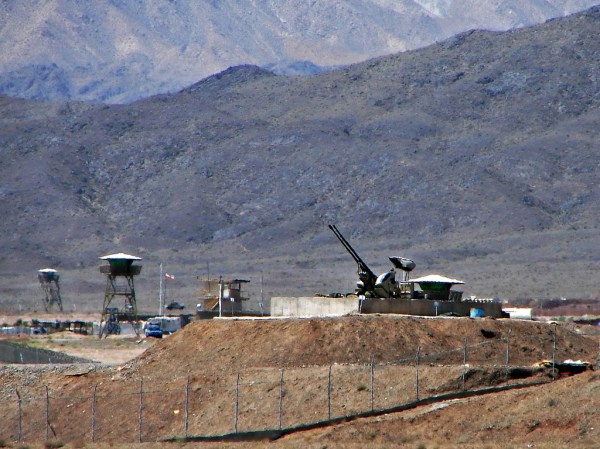The threshold for enriching uranium to a purity that can be used in a nuclear weapon is 90%. Inspectors from the International Atomic Energy Agency suspect Iran has enriched uranium to 84% purity, the closest the Islamic Republic has ever been to being able to create a nuclear bomb. The IAEA has no idea how Iran was able to produce that kind of enrichment.
Iran had previously reported to the energy agency that it had enriched uranium to a maximum of 60%, and had long held that its enrichment program was designed for peaceful purposes only. Iran says the finding isn’t intended for a nuclear weapon, and high levels of enrichment have happened before. It denies the 84% claim.
“What matters is the final product, and the Islamic Republic of Iran has so far not tried to enrich over 60 percent,” Iran’s atomic energy official told the country’s state-run media. “The presence of particles above 60% enrichment does not mean production with an enrichment above 60%.” He also called the accusation “a smear and a distortion of the fact.”
“We are in close contact with our partners following reports that Iran may have enriched uranium to levels over 80 percent,” a European diplomat told The Wall Street Journal. “If confirmed this would be an unprecedented and extremely grave development.”
Former President Donald Trump withdrew the United States from the Joint Comprehensive Plan of Action, better known as the Iran Nuclear Deal, negotiated under President Barack Obama. That deal capped Iran’s uranium enrichment at 3.67%, which the other parties to the agreement, China, France, Germany, Russia, the European Union, and the United Kingdom, believe Iran complied with.
The deal also required the Islamic Republic to limit its uranium stockpile by 98% and reduce the number of gas centrifuges required to enrich uranium for 13 years. Iran also agreed not to build new heavy water facilities during the same time period and provide access to IAEA officials to ensure its compliance with the terms of the agreement.
After Trump withdrew the U.S. from the JCPOA in 2018, Iran announced it would exceed the limit of its stockpiled uranium. After the U.S. launched an airstrike that killed Iranian Gen. Qassem Soleimani, Iran withdrew from the agreement entirely
Israel has long been opposed to any kind of deal that allows Iran to enrich uranium, on the ground that the Iranian regime has repeatedly stated its intention to “wipe Israel off the map.” Since its opposition to the Iran nuclear program began, Israel has launched cyberattacks (like the Stuxnet worm) to slow its progress. It’s even been accused of assassinating Iranian nuclear experts. Between 2010 and 2012, four were killed and another survived an attempt on his life.
Israeli physicist Dr. Naama Charit Yaari told The Jerusalem Post that if Iran did have nuclear material at 84% purity, it would still be capable of building a nuclear weapon. She is Israel’s representative to the UN Preparatory Commission for the Comprehensive Nuclear-Test-Ban Treaty.

“If the report about finding in Iran uranium enriched to the level of 84% is indeed accurate, then in theory, the Ayatollah regime already has nuclear fuel suitable for making a bomb. It will be less effective than a quality bomb, but certainly possible,” Yaari said.
Israel has long held that it will do everything in its power to prevent Iran from acquiring nuclear weapons. Though the IAEA has found no evidence that Iran has made strides toward building a nuclear weapon, Israeli Prime Minister Benjamin Netanyahu has already convened a top-level meeting to prepare for a confrontation with Iran.
“The only thing that has ever stopped rogue nations from developing nuclear weapons is a credible military threat or a credible military action,” he told a national security conference. “A necessary condition and often a sufficient condition is credible military action. The longer you wait, the harder that becomes. We’ve waited very long.”









